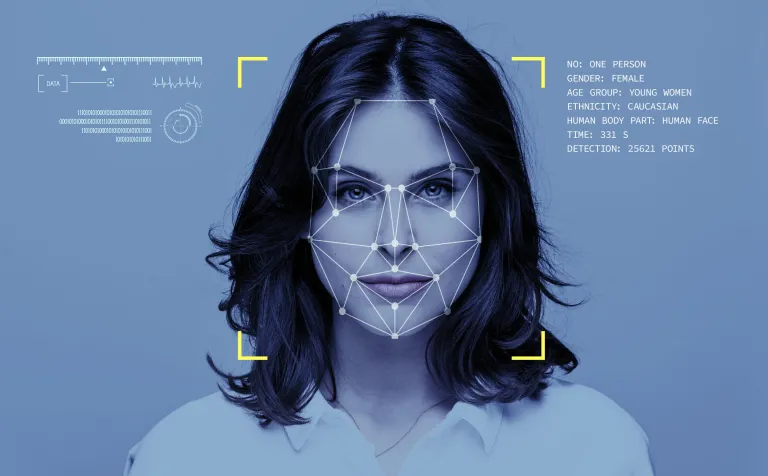In today’s interconnected world, it’s nearly impossible to navigate through daily life without encountering the influence of big tech. From the social media platforms that connect us with friends and family to the apps we use to manage everything from finances to health, big tech companies such as Google, Facebook (now Meta), Apple, and Amazon have become ubiquitous in our lives. The convenience they offer is undeniable—yet, beneath the surface of this convenience lies a far more concerning reality: the erosion of privacy.
What once seemed like a minor trade-off—using free apps or services in exchange for data—has spiraled into a multifaceted issue involving surveillance capitalism, data harvesting, and power imbalances that impact not only individuals but societies at large. The big question today is: How has big tech impacted privacy, and what can we do to protect ourselves?
The Rise of Big Tech: A New Kind of Power
The term “big tech” refers to a group of powerful companies that dominate the digital landscape. These include:
- Google, with its vast search engine and data collection through services like Gmail, YouTube, and Google Maps.
- Facebook (Meta), the social media giant that owns Facebook, Instagram, WhatsApp, and Oculus.
- Apple, known for its iPhones, iPads, and Mac computers, alongside its services like iCloud and the App Store.
- Amazon, the e-commerce behemoth, as well as its expanding footprint in cloud computing (AWS) and entertainment (Prime Video).
- Microsoft, with its dominance in software (Windows), cloud services (Azure), and gaming (Xbox).
These companies have not only transformed how we shop, communicate, and entertain ourselves, but also how we work, learn, and interact with the world around us. Yet, they also play a central role in the ongoing erosion of privacy rights.
The rapid growth of big tech, paired with their insatiable appetite for data, has created an environment in which personal information has become a highly valuable commodity. As these companies collect vast quantities of data on their users—often without their full understanding or consent—they have positioned themselves as modern-day gatekeepers, wielding an unprecedented level of influence over individuals’ lives.
The Business Model: Data as Currency
The business model of big tech companies revolves around one simple principle: data is currency. The more data they collect, the more they can sell targeted ads, refine algorithms, and tailor services to individual users. In other words, these companies don’t just offer free services—they harvest data from their users, often using sophisticated methods to track and store every click, search, and interaction.
This process is known as surveillance capitalism. It refers to the commodification of personal data for profit, where individuals are reduced to data points and behavioral predictions. The massive troves of data these companies collect allow them to create incredibly detailed profiles of their users. This data can be used not only for personalized advertising but also for shaping consumer behavior, political discourse, and even social norms.
While many people are aware that tech companies collect their data, the extent to which this data is tracked, stored, and sold is often much greater than expected. What makes matters even worse is that much of this tracking happens without explicit user consent. From location tracking to facial recognition technology, the mechanisms for collecting personal data are becoming increasingly advanced—and often invisible to the user.
How Data is Collected: The Invasive Mechanisms
The tools and techniques used by big tech companies to collect personal data are diverse, and many of them are incredibly sophisticated. Here’s a closer look at how this data is gathered and what makes it so invasive.
Cookies and Tracking Pixels
Cookies are small pieces of data that websites store on a user’s device to track activity. These cookies can track everything from the pages a user visits to the items they add to a shopping cart. While cookies serve useful functions, such as remembering login information or personalizing content, they can also be used to create detailed behavioral profiles of individuals.
Tracking pixels are another form of data collection. These invisible images embedded in emails, ads, or websites allow companies to monitor user behavior across different platforms. Every time a user clicks on a link or interacts with a page, the tracking pixel sends that information back to the tech company. This allows companies to gather data on what users are doing, how often they engage, and what content they find most appealing.
Mobile Apps and Location Tracking
Mobile apps, particularly those with location-based services, have access to an enormous amount of personal data. Beyond just storing your preferences and app activity, many apps track your physical location through GPS and other sensors. Some apps track your location even when they’re not in use, quietly gathering data on your movements and routines.
Tech giants such as Google and Facebook track user location to a frightening degree. Google Maps, for instance, tracks not only your travel routes but your everyday movements, such as where you go to work or how long you spend at a particular location. Although users can disable location tracking, it’s not always immediately obvious how to do so, and many apps continue to gather data in the background.
Social Media and Data Mining
Social media platforms like Facebook, Instagram, and Twitter are notorious for collecting vast amounts of personal information. When you use these platforms, you’re not just sharing status updates and photos—you’re also sharing your social connections, your interests, your political views, and even your mood.
Facebook, for example, uses its algorithms to track how users engage with content, who they interact with, and what topics they like or comment on. This information is then used to build a detailed user profile, which is sold to advertisers looking to target specific demographics.
Moreover, the way these companies collect data is often opaque. Users may not realize that every interaction on social media—from a “like” to a comment or share—is feeding a broader algorithmic system that has real-world consequences. For instance, social media companies have been criticized for amplifying divisive political content because it generates more engagement (and thus more data).
Facial Recognition and Biometrics
One of the most concerning developments in the digital age is the rise of facial recognition technology. Many big tech companies, especially those in the social media and security sectors, have implemented this technology as part of their apps or devices. Facebook, for example, uses facial recognition to automatically tag people in photos. While this technology has been praised for its convenience, it has also raised serious concerns about privacy.
Facial recognition technology can be used to track individuals without their knowledge or consent, creating a digital “map” of a person’s face that can be cross-referenced with other data points. The ability to track someone in real-time using facial recognition has made headlines in several countries, and tech giants are increasingly being called to account for their role in normalizing and spreading the use of this technology.
In addition to facial recognition, big tech companies are collecting biometric data in other ways. Apple’s Face ID and Touch ID are designed to give users an extra layer of security by scanning their faces or fingerprints. While these features make it easier to access devices, they also create massive datasets that can be vulnerable to misuse, especially if these companies are storing the biometric data in centralized databases.
The Consequences: Loss of Privacy and Autonomy
The data collection strategies employed by big tech companies have far-reaching implications for individual privacy. As tech companies gather vast amounts of data on their users, they gain the ability to influence behavior, shape opinions, and even sway elections. But the impact of this data collection extends beyond just ads and content—here are a few of the more significant consequences.
Surveillance and Control
One of the most disturbing implications of the rise of big tech is the growth of surveillance. When companies collect such detailed data on their users, they not only know who you are—they know what you do, when you do it, and where you go. This creates the potential for massive surveillance networks that could be used not just by companies but by governments, law enforcement, and other entities with an interest in controlling or monitoring populations.
Social credit systems, which have been implemented in China, provide an example of how surveillance and data collection can be used to control individuals’ behaviors. These systems track everything from financial behavior to social interactions, and they can penalize or reward citizens based on their actions. Although this level of surveillance isn’t widely present in the Western world (yet), the data collection practices of big tech companies could eventually be used to create similar systems elsewhere.
Psychological Manipulation
Another concerning consequence of data collection is its potential for psychological manipulation. By gathering vast amounts of information about users’ interests, habits, and vulnerabilities, tech companies are able to target individuals with highly personalized content designed to influence their behavior.
A powerful example of this was seen during the 2016 U.S. presidential election, where data mining techniques were used to target specific voters with tailored political ads. These ads were designed not just to inform but to persuade, often using emotionally charged content to sway public opinion.
The impact of these techniques goes beyond politics. Tech companies also use data to maximize user engagement on their platforms, keeping individuals hooked on their devices by providing them with the most emotionally engaging content. This not only affects people’s behavior but also their sense of reality, as algorithms can create filter bubbles that isolate individuals from opposing viewpoints and diverse perspectives.
Data Breaches and Security Threats
The more data companies collect, the greater the risk of data breaches and security threats. Big tech companies hold vast troves of personal information, making them prime targets for hackers. When data is stolen—such as in the case of the 2017 Equifax breach, or the Cambridge Analytica scandal involving Facebook—the consequences can be severe. Personal information, from addresses to Social Security numbers, is often exposed, leaving individuals vulnerable to identity theft, fraud, and other forms of exploitation.
Even when data isn’t stolen, the mere accumulation of so much sensitive information raises concerns. If data is not adequately protected, or if companies misuse it for profit, the consequences can be catastrophic for individual privacy.
Protecting Your Privacy in the Age of Big Tech
In the face of these growing privacy concerns, individuals must take steps to protect their personal information. While it may feel like a battle against powerful giants, there are ways to safeguard your privacy in the digital age.
Use Privacy-Focused Tools
One of the most effective ways to regain control over your privacy is to use privacy-focused tools and services. For example:
- Browsers like Mozilla Firefox or Brave, which prioritize privacy and block tracking scripts.
- Search engines like DuckDuckGo, which don’t track your searches or store your data.
- VPNs (Virtual Private Networks), which mask your IP address and encrypt your internet traffic, preventing third parties from tracking your online activity.
- Encrypted messaging apps like Signal, which provide end-to-end encryption for communications.
Be Mindful of App Permissions
When downloading apps or using online services, always review the permissions requested by the app. Many apps request permissions that aren’t strictly necessary for the service to function. For example, why would a flashlight app need access to your location or camera?
Be selective about which apps you trust with your data, and don’t hesitate to deny permissions that seem excessive or intrusive. Many modern operating systems, like iOS and Android, offer more granular control over app permissions, allowing you to disable location tracking or revoke microphone access.
Limit Social Media Sharing
Consider what you’re sharing on social media platforms. While it’s natural to want to connect with others, it’s important to understand that everything you post could be used to build a profile of you. Adjust privacy settings to limit who can see your posts, and be cautious about sharing too much personal information, especially sensitive data like your whereabouts, personal interests, or political views.
Educate Yourself
One of the most important steps in protecting your privacy is to understand the risks and take proactive measures. Stay informed about privacy issues, learn how companies collect and use your data, and be critical of the services you use. The more you know, the better you can protect your personal information.
Conclusion: The Fight for Privacy Is Just Beginning
The impact of big tech on privacy is profound and ever-growing. As these companies continue to amass power and data, individuals are left grappling with the erosion of their personal privacy. But there is hope. With awareness, tools, and activism, it is possible to reclaim privacy in the digital age.
The fight for privacy is far from over, and with increasing public awareness and demand for accountability, the future may hold a more balanced approach to data collection—one where individuals have greater control over their personal information. Until that time comes, however, it’s up to each of us to take steps to protect our digital selves.
The choices we make today, in how we interact with technology, will shape the privacy landscape of tomorrow. In the end, the battle for privacy is not just about protecting individual rights—it’s about preserving the very essence of what it means to be free in the digital age.






